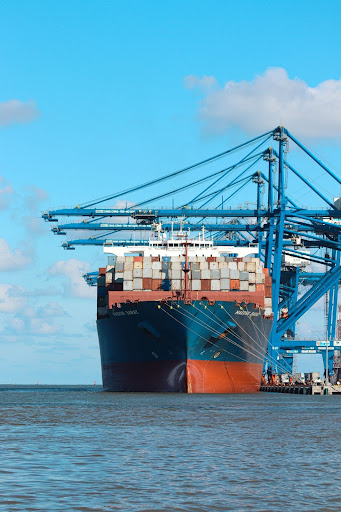
The vital role of plastic wholesalers in the global economy
Blog
The vital role of plastic wholesalers in the global economy
Authored By: SDI Plastics
In the intricate web of the global economy, plastic wholesalers assume a pivotal role, serving as essential intermediaries in the supply chain that sustains diverse industries. Acting as conduits between manufacturers and retailers, these wholesalers play a crucial role in facilitating the seamless distribution of plastic products, addressing the dynamic demands of a rapidly expanding global market. Beyond the simple exchange of goods, their significance extends to a nuanced interplay of logistics, innovation, and sustainability.
In an era defined by heightened environmental awareness and swift industrial transformations, the role of plastic wholesalers becomes increasingly significant as they navigate the delicate balance between economic growth and responsible resource management. This introductory exploration sheds light on the multifaceted contribution of plastic wholesalers to the intricate fabric of the global economic landscape.
Key functions and benefits
Plastic wholesalers perform various functions spanning organisational scales that underpin an interconnected global marketplace. These are listed below.
Aggregation and distribution
Wholesalers purchase plastic resins, sheets, rods, films, fasteners, components, and downstream products from an array of vendors and manufacturers. By aggregating inventory, wholesalers help manufacturers specialise while providing purchasers access to a comprehensive catalogue of materials and parts. This availability allows flexibility in responding to client requirements.
Wholesalers add value through global logistical networks, distributing products efficiently to wherever end markets demand them. This relieves other supply chain actors from capitalising on extensive warehousing, shipping, and fulfilment operations themselves. Gravitation towards “just in time” manufacturing also relies on wholesalers to reliably bridge the physical gap between producers and commercial users.
Trade enablement
Importantly, wholesalers facilitate international trade by easing market entry barriers and minimising transaction costs. Their economies of scale lower per-unit logistics expenses, while their expertise in navigating import procedures, documentation, duties, and clearances enables accessibility for downstream purchasers. This is instrumental for small and medium enterprises that are otherwise challenged to source inputs globally.
In economic terms, wholesalers reduce what is known as “channel friction,” allowing products and materials to flow more freely across borders to where utility is highest. By expanding trade flows and market participation, wholesalers meaningfully contribute to global production efficiency and net output.
Market transparency
Wholesalers also influence global pricing mechanisms and benchmarks through trading. Bid and ask quotations allow visibility into real-time supply and demand dynamics. This price transparency helps smooth marketplace volatility that could otherwise deter market actors. Well-functioning and stable pricing support international commerce and productivity.
Additionally, price signalling channels incentivise manufacturers to increase or reallocate production capacities towards goods seeing greater demand. This helps align worldwide production and consumption patterns. As distribution experts, wholesalers provide market intelligence contextualising underlying shifts useful for commercial planning purposes across industries.
Trends and developments
Several key trends are impacting plastic wholesalers, with implications for global markets:
Industry consolidation
Wholesaling frequently relies on economies of scale, but an influx of mergers and acquisitions has accelerated sector consolidation. Coupled with digitisation, larger wholesalers aim to leverage purchasing power and synchronised multinational logistics to lower costs and prices industry-wide. This could pressure smaller independents while benefiting big-box improvement retailers and other volume buyers.

Organic global growth
According to projections, plastic consumption will double worldwide by 2045. Expanding at 4% annually, demand is rising quickest in Asia and Africa, where industrialisation and consumerism are fueling major infrastructure build outs. Wholesalers situating supply networks to capitalise on these high-growth markets can find substantial opportunity. Export dynamics will also continue to rely on international distribution capabilities.
Onshoring trend
And as our current supply chain disruptions have been illuminated, diversifying sourcing channels is essential for risk mitigation. Some manufacturing is gradually returning to Australia from overseas, given rising Asian labour costs and the desire for regionalised production clusters. Wholesalers able to access and efficiently distribute domestic materials stand to see volumes grow in kind. Port distribution centres will likely take on heightened priority.
Circular economy
Lastly, environmental pressures around plastic waste are incentivising chemical recycling to enable feedstock regeneration, while consumers and regulators demand greater sustainability. Wholesalers can add value by integrating reused resins or offering closed-loop services for clients. Shared stewardship facilitating circularity through the supply web will only increase in importance and marketability going forward.
Conclusion
Plastic wholesalers fulfil indispensable roles connecting disparate aspects of the global economy. Organising logistics channels, minimising costs and friction, and enabling widespread market access have proven foundational for growth and rising prosperity over the past 75 years. While recent uncertainty has disrupted certain distribution networks, wholesalers continue to drive downstream innovation across industries and geographies, both large and small.
New socio economic priorities in the 21st century will compel the vital wholesale industry to keep progressing as well. Pursuing sustainability and stewardship presents real opportunities for differentiation while ensuring resilient supply as the world confronts unprecedented environmental and political challenges. If wholesalers rise to meet this calling, they can continue fueling inclusive economic advances worldwide.
Book your free consultation
Give us a call to book your free consultation and learn how much value can be added to your business with SDI Plastics by your side.